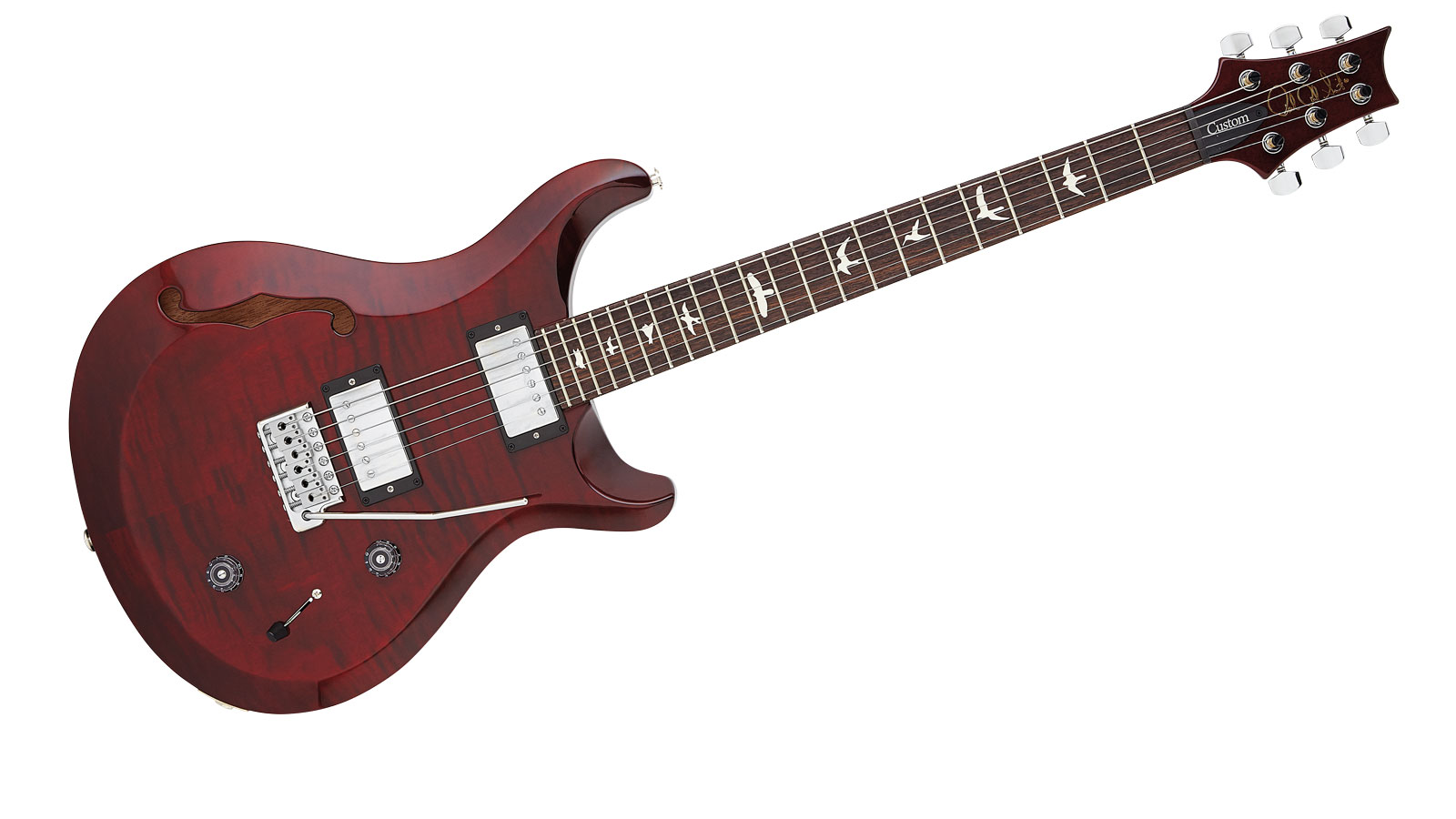MusicRadar Verdict
A lightweight, semi take on PRS's classic - the vibrato alone might be enough to sway you.
Pros
- +
Quality build. Extremely playable neck. Stable tuning. Nicely suited to rock styles. Good all-rounder.
Cons
- -
Less of a dialled-in sound than most PRS guitars we've played.
MusicRadar's got your back
The S2 Custom 22's major difference, along with that lower price-point, is the plainer 'blue-collar' vibe. Devoid of fancy inlays and impossibly pretty, figured maple tops, it seems that, by design, PRS is aiming to expand its user base but without compromising its quality or consistency. As we've said in our previous reviews of the S2 guitars: there's nothing that suggests this is built in haste.
In broad terms, this new semi-solid sticks closely to the all-solid version in both shape and specification. The combination of the Custom's subtly increased body depth - 45mm - and the fact that the cavity extends more into the bass-side horn and behind, but not all the way, means there's a noticeable air-to-solid-wood ratio.
"This semi has its own voice and it sits more in the classic and alt-rock genres, rather than old-school jazz and blues"
The guitar retains its belly cut, which is directly underneath the cavity and therefore limits its depth. Of course, the central area and most of the treble side, apart from the control cavities, remain solid.
The back wood has the necessary routing and is then capped with centre-joined figured maple. The top piece, however, on the underside of the f-hole, is also routed so the top looks thinner than it is. The f-hole is unbound, like the rest of the guitar, and unlike the maple- topped 'core line' guitars there is no natural maple edge.
The Custom's Black Cherry finish is translucent overall and you can see clearly that the back, as specified, is a single piece of wood.
Another feature of this guitar is the (subtly) reduced weight. It's noticeably lighter than the previous solid version we've encountered. The locking tuners, scale length, and vibrato specific are the same as the solid version. You'll also find the same pickups as its solid brethen, with #7 covered humbuckers, which are USA-designed and made in Korea; likewise, the vibrato.
We've written plenty about how PRS believes unplated bridge posts, saddles and even tuner posts maximise vibration transfer, and it's the same here as on the core-line instruments.
Want all the hottest music and gear news, reviews, deals, features and more, direct to your inbox? Sign up here.
Sounds
Irrelevant of the sounds, it's important to remind ourselves just how well this guitar plays. The pattern regular neck shape feels chunky but not over-big; the fretting from a medium gauge, slightly wider than the core line guitar, is immaculate, like the set-up and intonation.
Using a diverse range of semis for reference, including a PRS SE Custom Semi-Hollow with P-90s, a Guild Starfire V with Bigsby and an all-mahogany PRS Singlecut Hollowbody, we set about a rather lengthy sound test. Here goes...
Unplugged, the Custom's midrange sounds open and bright. Is it really much louder unplugged than a standard solidbody? Not much. Plugging in, the highs are slightly tamed and there's a thickness to the sound in the lower mids, and with it a little crunch.
This semi has its own voice - although to generalise, and compared to our reference semis, it sits more in the classic and alt-rock genres, rather than old-school jazz and blues, where a little crunch and gain, combined with the small air chambers and the coil-splits, create some excellent, highly resonant and (if required), on-the-edge of feedback tones that seem both contemporary and timeless.
Then, of course, there's PRS's superb build, playability, intonation and tuning stability, and it's very gig-ready. But if we're honest, the sounds are a little less 'dialled in' than the solidbody S2, or indeed the majority of PRS's core-line instruments we've tested. Perhaps it's simply that we were expecting a little more semi-like character.
In reality the timeless, classic Custom sits in the middle between a semi-like sound and a solidbody, and with the inclusion of the vibrato it's proved to be something of an 'all-rounder'.
Dave Burrluck is one of the world’s most experienced guitar journalists, who started writing back in the '80s for International Musician and Recording World, co-founded The Guitar Magazine and has been the Gear Reviews Editor of Guitarist magazine for the past two decades. Along the way, Dave has been the sole author of The PRS Guitar Book and The Player's Guide to Guitar Maintenance as well as contributing to numerous other books on the electric guitar. Dave is an active gigging and recording musician and still finds time to make, repair and mod guitars, not least for Guitarist’s The Mod Squad.

